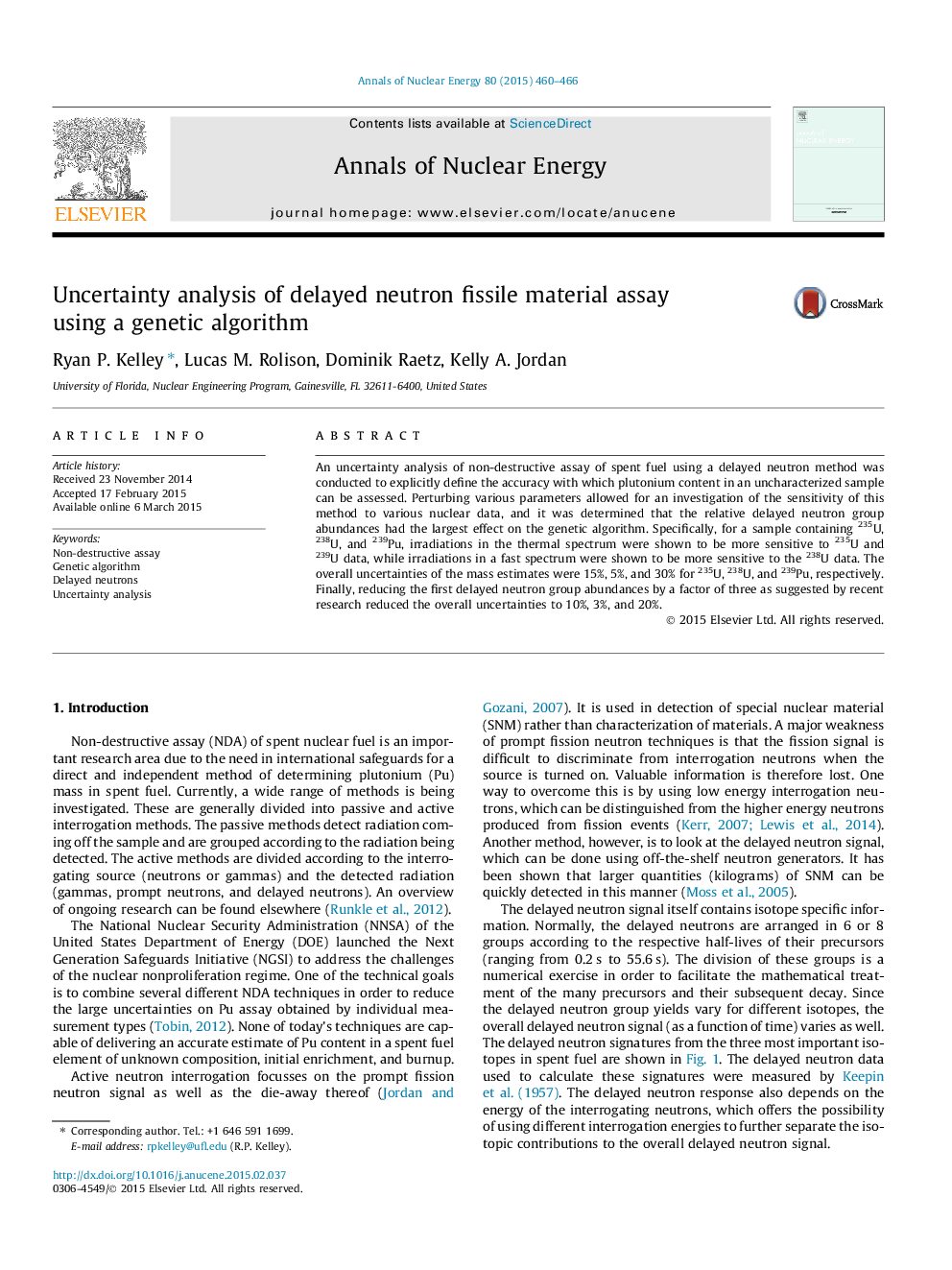| Article ID | Journal | Published Year | Pages | File Type |
|---|---|---|---|---|
| 8068857 | Annals of Nuclear Energy | 2015 | 7 Pages |
Abstract
An uncertainty analysis of non-destructive assay of spent fuel using a delayed neutron method was conducted to explicitly define the accuracy with which plutonium content in an uncharacterized sample can be assessed. Perturbing various parameters allowed for an investigation of the sensitivity of this method to various nuclear data, and it was determined that the relative delayed neutron group abundances had the largest effect on the genetic algorithm. Specifically, for a sample containing 235U, 238U, and 239Pu, irradiations in the thermal spectrum were shown to be more sensitive to 235U and 239U data, while irradiations in a fast spectrum were shown to be more sensitive to the 238U data. The overall uncertainties of the mass estimates were 15%, 5%, and 30% for 235U, 238U, and 239Pu, respectively. Finally, reducing the first delayed neutron group abundances by a factor of three as suggested by recent research reduced the overall uncertainties to 10%, 3%, and 20%.
Related Topics
Physical Sciences and Engineering
Energy
Energy Engineering and Power Technology
Authors
Ryan P. Kelley, Lucas M. Rolison, Dominik Raetz, Kelly A. Jordan,
